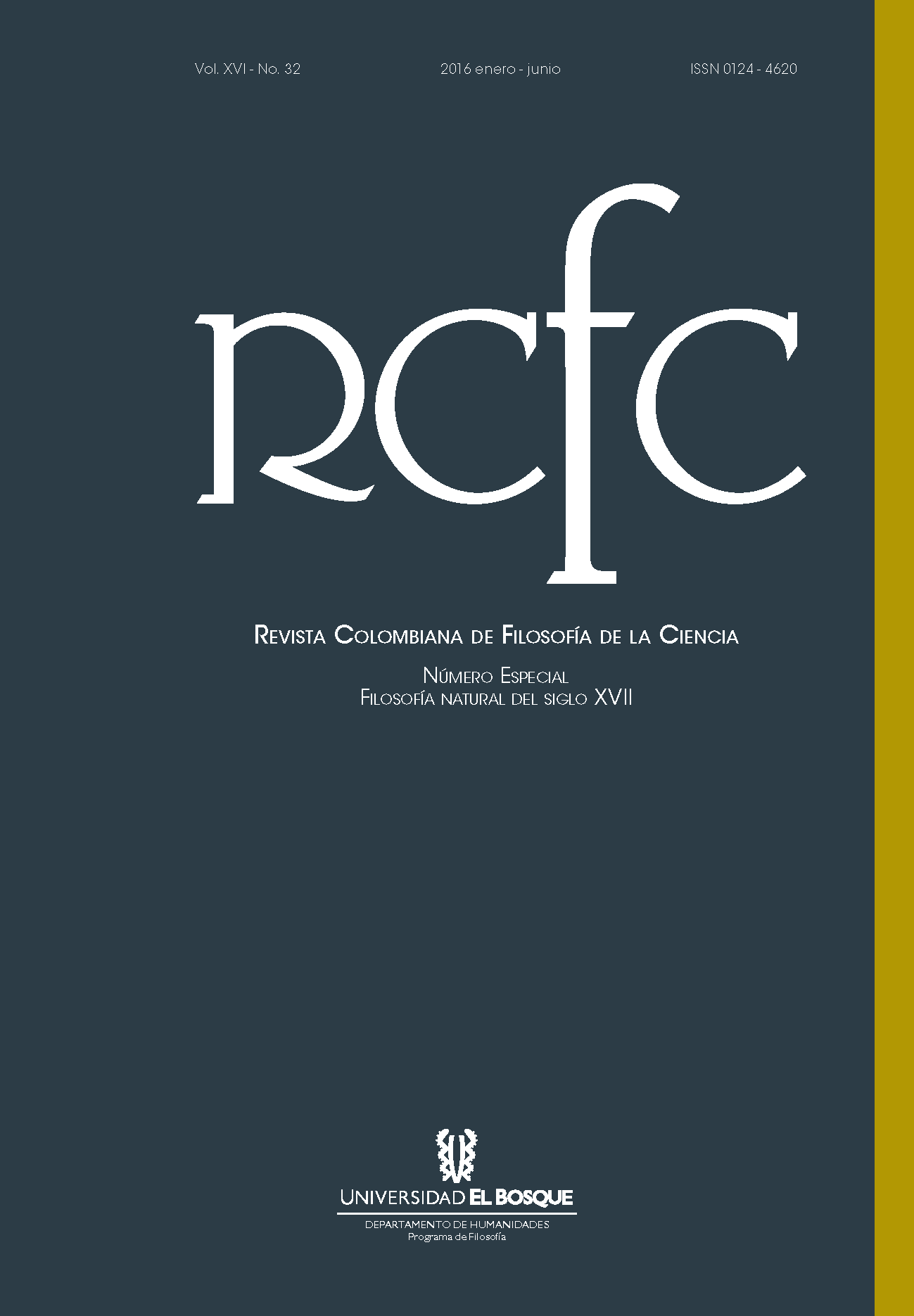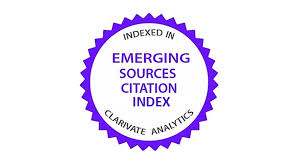Limits of Natural Philosophy at the Primary and Secondary Qualities distinction in John Locke
DOI:
https://doi.org/10.18270/rcfc.v16i32.1824Keywords:
Natural Philosophy, Epistemology, Mechanicism, Substance, Seventeenth Century, Modern PhilosophyAbstract
The purpose of this article is to clarify the distinction between primary and secondary qualities in the philosophy of Locke, in the light of the traditions that on the subject had on hand. First, I will contrast his claims about primary and secondary qualities clearly mechanistic approach to the philosophy of Boyle and Descartes's characterization of the extent as a substance of bodies and the thought as a substance of soul. Finally, I will put Locke's position in the light of the experimental philosophy of Newton and his particular understanding of the qualities of matter, as is described in his Principia. From this I can conclude that the distinction between primary and secondary qualities in Locke's Essay describes the terms of our understanding of nature, but not of what are the objects themselves. This implies that the distinction is purely operational, rather than a description of the nature of the objects of our knowledge.
Downloads
References
Ayer, Michael. “Primary and Secondary Qualities in Locke’s Essay”. Primary and Secondary Qualities: The Historical and Ongoing Debate. Ed. Lawrence Nolan. New York: Oxford University Press, 2011.
Bennett, Jonathan. “Ideas and Qualities in Locke’s Essay”. History of Philosophy Quarterly 13 (1996): 73-88.
_____. Locke, Berkeley, Hume: Central Themes. Oxford: Oxford University Press, 1971.
Campbell, John. “Locke on Qualities”. Canadian Journal of Philosophy 10 (1980): 567-85.
Cottingham, John. “Descartes on Colour”. Proceedings of the Aristotelian Society 90 (1989-1990): 231-46.
Cranston, Maurice. John Locke: A Biography. London: Oxford University Press, 1957.
Curley, E. M. “Locke, Boyle, and the Distinction between Primary and Secondary Qualities”. The Philosophical Review 81 (1972): 438-64.
Downing, Lisa. “Locke: The Primary and Secondary Quality Distinction”. The Routledge Companion to Metaphysics. Eds. Robin Le Poidevin et ál. New York: Routledge, 2009.
Franck, Robert G. Harvey and the Oxford Physiologists. California: Berkeley University Press, 1980.
Jacovides, Michael. “Locke’s Distinction between Primary and Secondary Qualities”. The Cambridge Companion to Locke’s Essay Concerning Human Understanding. Ed. Alex Newman. New York: Cambridge University Press, 2007.
_____. “Locke on the Semantics of Secondary-Quality Words: A Reply to Matthew Stuart” (2007). Web. 10 octubre 2014. <http://web.ics.purdue.edu/~mjacovid/Reply%20to%20Stuart.pdf>.
_____. “Sources of the Apparent World: Locke, Secondary Qualities, and the Scientific Revolution (2014). Web 10 octubre 2014. <http://web.ics.purdue.edu/~mjacovid/Sources.pdf>.
Jackson, Reginald. “Locke’s Distinction between Primary and Secondary Qualities”. Mind 38 (1929): 56-76.
Locke, John. Ensayo sobre el entendimiento humano. Trad. Edmundo O’Gorman. México D. F.: Fondo de Cultura Económica, 1999
_____. An Essay Concerning Human Understanding. Ed. Peter H. Nidditch. New York: Oxford University Press, 1975.
_____. The Works of John Locke in Nine Volumes. London, 1794.
Mackie, J. L. Problems from Locke. New York: Oxford University Press, 1976.
McCann, Edwin. “Locke’s Distinction between Primary Qualities and Secondary Primary Qualities”. Primary and Secondary Qualities: The Historical and Ongoing Debate. Ed. Lawrence Nolan. New York: Oxford University Press, 2011.
Milton, J. R. “Locke’s Life and Times”. The Cambridge Companion to Locke. Ed. Vere Chappell. Cambridge: Cambridge University Press, 1994.
_____. “Locke at Oxford”. John Locke: A Biography. Ed. Maurice Cranston. London: Oxford University Press, 1957.
Pasnau, Robert. “Scholastic Qualities, Primary and Secondary”. Primary and Secondary Qualities: The Historical and Ongoing Debate. Ed. Lawrence Nolan. New York: Oxford University Press, 2011.
Rickless, Samuel C. “Locke on Primary and Secondary Qualities”. Pacific Philosophical Quarterly 78 (1997): 297-219.
Robles, José A. y Carmen Silva. “Introducción”. Ensayo sobre el entendimiento humano. Aut. John Locke. Trad. Edmundo O’Gorman. México D. F.: Fondo de Cultura Económica, 1999.
Rogers, G. A. J. “Introduction”. John Locke: A Biography. Aut. Maurice Cranston. London: Oxford University Press, 1957.
Wood, Rega y Michael Weisberg. “Interpreting Aristotle on Mixture: problems about elemental composition from Philoponus to Cooper”. Studies on History and Philosophy of Science 35 (2004): 681-706.
Woolhouse, Roger. Locke: A Biography. New York: Cambridge University Press, 2007.

Downloads
Published
How to Cite
Issue
Section
License
Copyright (c) 2016 Revista Colombiana de Filosofía de la Ciencia

This work is licensed under a Creative Commons Attribution-NonCommercial-NoDerivatives 4.0 International License.

| Article metrics | |
|---|---|
| Abstract views | |
| Galley vies | |
| PDF Views | |
| HTML views | |
| Other views | |










